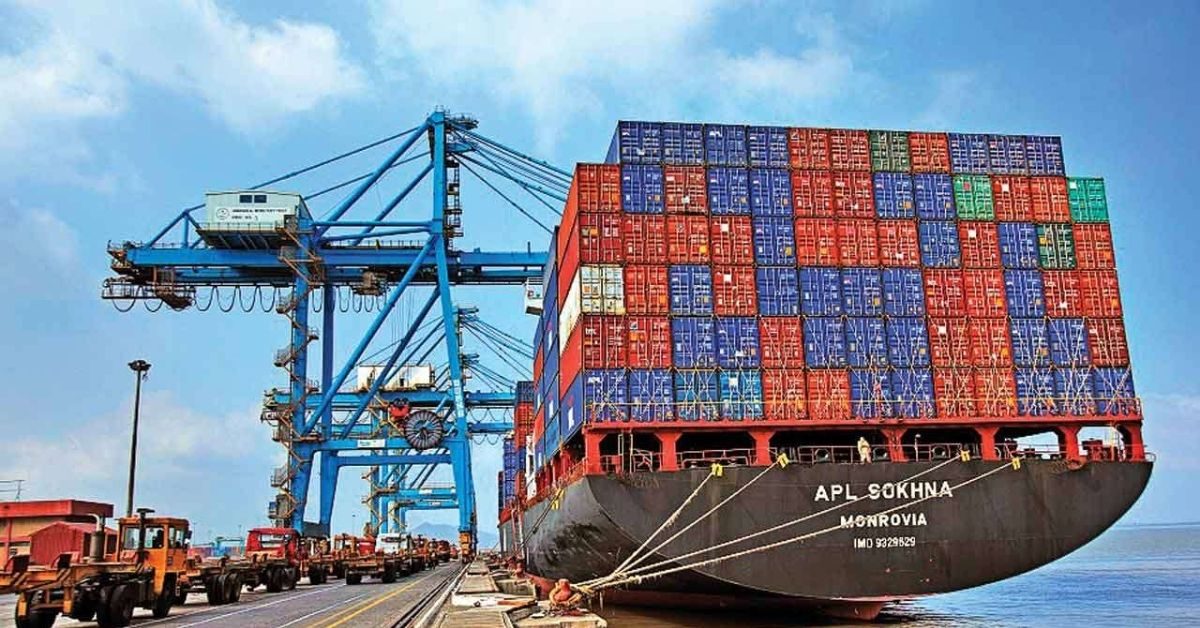Slowing cargo growth and lower capacity utilisation have intensified inter-port competition, putting pressure on pricing, say port operators and industry experts.
In FY21, the total consolidated cargo handled by Indian ports was around 1,247 million tonnes (mt), a decline of 5.4 per cent from FY20.
Energy-related commodities especially thermal coal, crude and petroleum products witnessed the highest decline in volumes.
The cargo handled by the Centre-owned major ports declined 4.6 per cent to 673 mt from 705 mt in FY20, according to the Indian Ports Association (IPA), a body representing the major ports.
The overseas cargo handled at major ports decreased by 2.6 per cent in FY21 to 524 mt from 539 mt in FY20.
Coastal cargo handled at the major ports in FY21 decreased by 11.4 per cent to 148 mt from 167 mt during FY20.
Non-major ports (those owned by the States and given to private firms) handled 575 mt in FY21, a contraction of 6.2 per cent over FY20 volumes of 614 mt, according to the Ministry of Ports, Shipping and Waterways.
The overseas cargo handled at non-major ports during FY21 decreased by 4.3 per cent to 500 mt from 523 mt in FY20. The coastal cargo handled at non-major ports during FY21 decreased by 17.3 per cent to 75 mt from 91 mt in FY20.
Bucking the trend of many years, major ports gained a market share of 0.4 per cent in FY21.
The major ports have a capacity of 1,534 mt while that of non-major ports is 910 mt.
At the FY21 cargo levels, the capacity utilisation of major ports was about 44 per cent while that at non-major ports was around 63 per cent.
“FY21 resulted in almost 5% ports volume reduction at a pan-India level, which resulted in lower ports capacity utilisation across the sector. Lower capacity utilisation increased inter-port competition for cargo and (put) pressure on pricing,” Adani Ports and Special Economic Zone Ltd (APSEZ) said in its annual report for FY21. The firm’s network of ports handled 247.28 mt of cargo in FY21 compared to a capacity of 480 mt with a utilisation of 51.5 per cent.
“Increased competition could affect growth and margins,” it said.
Port industry executives said that erratic demand patterns could hurt port utilisation and revenue predictability.
“In sync with the overall weak growth in EXIM trade, the port volumes in India have not seen a robust growth. Despite the good potential to bolster cargo volumes, Indian ports have not seen remarkable growth in recent years,” said an industry consultant.
Through initiatives such as the ‘Sagarmala’ programme and investment in private ports, the country has already built adequate port cargo handling capacity. “In the recent past, the growth in Indian port volumes has remained subdued, where cargo volumes have not matched capacity additions,” he added.
The oversupply of capacity has translated into a substantial regional over-capacity, which has emerged as one of the key concerns for the port industry.
“The resulting inter-port competitions have become challenging, leading port operators to rethink business strategies. For example, over capacities in container terminals at the Chennai port cluster (ports of Chennai, Kattupalli, Ennore and Krishnapatnam) could result in stiff competition for common hinterland container cargo,” APSEZ, India’s biggest private port operator, said.
Port infrastructure aside, there are challenges on the commodity front also as the government harps on local production of thermal coal and fertilisers, particularly urea, reducing the demand for importing these commodities. Agri commodities could also face a downside.
“Inter-port competition with similar physical performance parameters could mean more bargaining powers to customers,” APSEZ added.
Source : The Hindu Businessline







